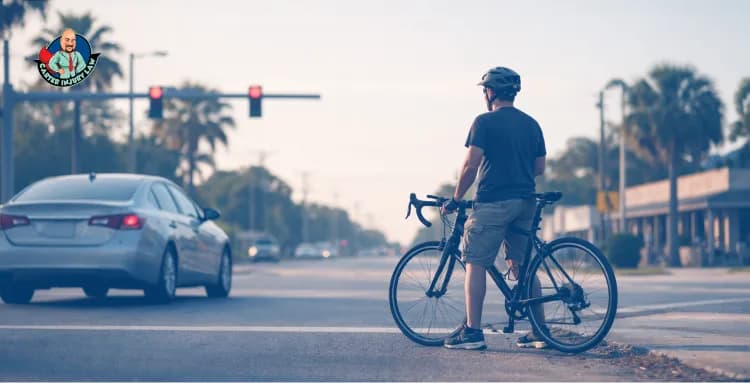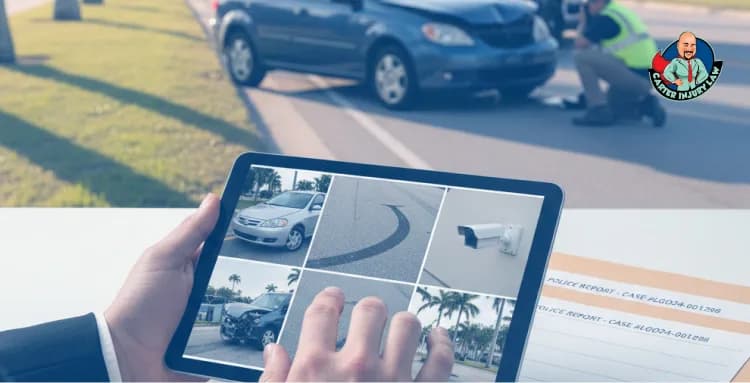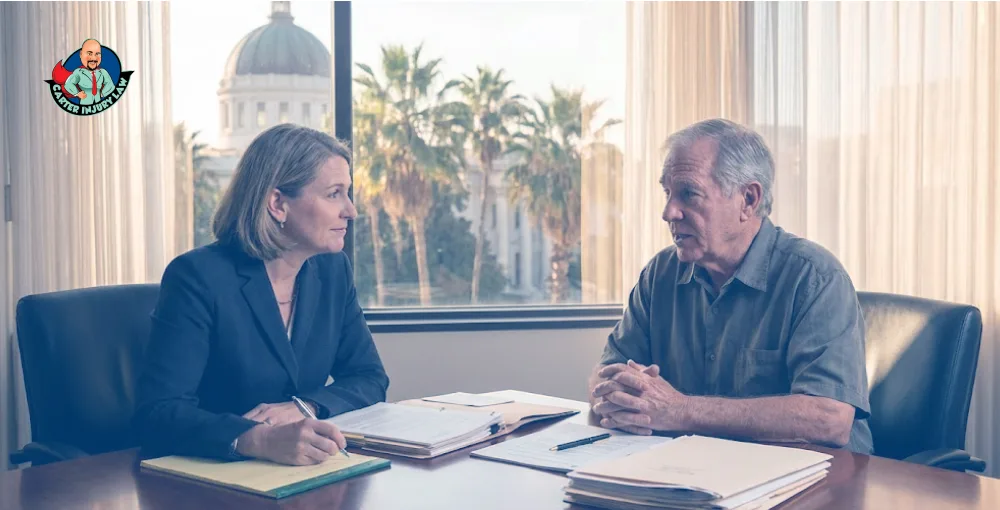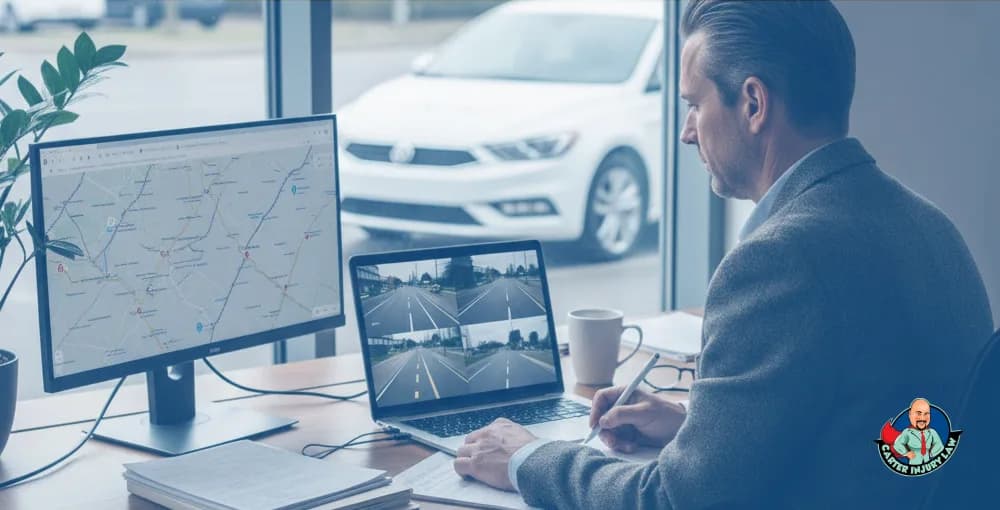You don't really prepare for the time when you'll need a lawyer. It usually occurs following an accident, a phone call, or a hospital visit that separates your life into before and after. And in the middle of all that, you’re expected to make legal decisions fast.
So you Google. You scroll. You try to read between the lines of star ratings and office photos. Everyone promises to fight for you. Everyone claims they care. Still, how do you know who’s actually going to show up when it matters?
That’s the thing, no one really prepares you for the injury nor the paperwork, and definitely not this next part…
1) Should You Talk to More Than One Attorney? (Short Answer: Yes)
A lot of people sign with the first lawyer they call. No interviews. No comparisons. Just a quick phone call and that’s it. They’re in.
Now, I get it. When you’ve just been in an accident or you’re dealing with a serious injury, the last thing you want is to feel like you're shopping around. However, this decision deserves your time. It's not like picking a mechanic. This is someone who may be handling your case for months or even years.
In fact, 68% of clients only consult one attorney before signing a contract (Clio 2023 Legal Trends Report).
And you know what that often leads to? Regret. Not always but often enough. Because they find out later the attorney doesn’t actually go to trial. Or they never speak to the same person twice. Or worse, they feel like a number instead of a human being.
Interviewing more than one attorney helps you see the difference between someone who just wants to sign a case and someone who’s actually going to stand with you. You learn who listens. Who asks the right follow-up questions. Who’s transparent about their strategy and who gives vague answers and promises the moon.
2) What Should You Ask in That First Conversation?
That first call with an attorney? It’s your chance to figure out whether this is someone you trust enough to guide you through what could be a long and emotional process.
So ask real and specific questions. Start with: Have you handled a case like mine before? Not just any case. Your case. If it’s a car crash where the other driver ran a red light, ask how they’ve handled that exact situation. If it’s a nursing home neglect case, ask what they’ve seen before. Details matter but experience matters more.
Next, ask: If my case doesn’t settle, will you take it to trial? Some firms don’t file lawsuits. They settle fast and move on. That’s fine when the offer is fair—but if it’s not, you need someone who’s not afraid of a courtroom. You don’t want to find out later that your case is being handed off because your lawyer wasn’t prepared to fight.
And don’t forget to ask: Will you personally be handling my case? It’s a fair question. In larger firms, the attorney you speak to first might not be the one actually working your file. Could be someone else entirely. That doesn’t always mean it’s a bad setup but you deserve to know who you’ll be working with and what their experience is.
And that brings us to one of the most important questions of all…
4) What’s Their Litigation Strategy? (And Why You Should Care)
Let’s say your case doesn’t settle right away. The insurance company lowballs the offer, or they flat-out deny the claim. What happens then?
That’s where you really find out what kind of attorney you hired.
Some lawyers run what's called a "max and settle" operation. They take the case, send a demand, and hope it settles without ever filing a lawsuit. That can work fine if the offer’s fair. But when it’s not, you need someone ready to step into court, not step aside.
So ask: Are you willing to litigate if we need to? And not just “in theory.” Have they actually done it? Do they file lawsuits regularly? Will they handle it or pass it off?
Because here’s the thing: only 4% of personal injury cases ever make it to trial, (U.S. Department of Justice, Bureau of Justice Statistics), but when they do, the payout is often 3 times higher than pre-suit settlements.
That’s a huge difference. And unfortunately, some firms will refer your case out the minute it gets complicated. Why? Sometimes it’s about the fee. Settling in-house often means they keep a larger cut. Referring it out? That usually means giving up a percentage to another lawyer.
Let’s break it down:
The lawyer's fee is usually a third, or roughly $33,000, if you settle for $100,000 up front.
That fee, however, increases to 40%, or $120,000, if you proceed to trial and win $300,000. If the lawyer sent your case to another lawyer, they might only receive a quarter of that, which is about $30,000.
For some lawyers, that kind of math quietly shapes how far they’re willing to take your case, whether they say it out loud or not.
We don’t refer out our litigation cases. If your case needs to go to court, we take it there ourselves. You stay with the same team. Same attorney. Same phone number. And speaking of staying close, let’s talk about why having a local lawyer matters just as much. Watch this quick video where David Carter breaks down how to choose the right personal injury lawyer and what he wishes every client knew before signing a contract .
5) Do They Actually Live and Work in Your Area?
These days, a lot of firms are expanding across the state or even the country by renting office space wherever they want to say they “serve.” They slap a local phone number on the site and a nice photo of the city skyline, but they’re not actually here. You call them, and you're routed to a call center. You ask to meet the attorney, and suddenly, it’s Zoom or nothing.
Now, there’s nothing wrong with remote options. However, if you're hiring someone to represent you in your community, especially in a serious case like a car crash or wrongful death, don’t you want someone who knows the roads, the local adjusters, and the judges? Someone who can actually walk into the courthouse if needed?
When a lawyer lives in your town, their name means something. Their reputation was developed in church pews, at the grocery store, and while waiting in line at the coffee shop, not on Google ads. People know who they are. And if that lawyer drops the ball? The community remembers.
That's why I always tell people that you're choosing a relationship rather than just hiring a lawyer. And in any relationship, trust starts with presence.
6) Can You Reach Them Directly Or Just Through a Wall of Staff?
A lot of folks don’t realize this is even something they can ask. They assume it’s normal to only talk to case managers or voicemail boxes. And hey, support staff are important. No good law firm runs without them. However you didn’t hire a receptionist. You hired a lawyer. And you should know exactly who that is.
If you're about to trust someone with your future, you should at least know their name, their voice, and how to get a hold of them. Do they give out their direct number? Do they have a response time policy? If you call with a real concern, will they get back to you that day or will you get a polite email two weeks later?
So let’s finish this out. If you're still wondering how to actually know you've found the right attorney for you... there’s one last thing to consider.
7) What Happens If You Change Your Mind?
In Florida, you have the legal right to cancel that agreement within 3 business days. It's called the 3-day cancellation rule, and most people don’t even know it exists.
We take that a step further. We offer a 30-day no-fee satisfaction guarantee. That means if you sign with us and decide within the first month that it’s not the right fit, you can walk away with no hard feelings.
If it doesn’t feel right early on, it probably won’t get better with time. And that’s okay. Choosing a lawyer shouldn’t feel like locking into a contract you can’t get out of. It should feel like hiring someone who actually wants to earn your trust.
And you'll know when you've found someone who actually shows up for you, listens, and responds to your inquiries. Because it won’t feel like a gamble anymore. It’ll feel like someone’s finally in your corner.
8) How to Vet a Lawyer Beyond Google Reviews
Google reviews are a good place to start but they shouldn’t be the only thing you look at. A five-star rating doesn’t tell you much unless you actually read what people are saying. Was the lawyer responsive? Did they keep the client in the loop? Did they deliver on what they promised?
That’s what you want to know.
One last tip? Don’t just skim. Take the time to read the reviews. Look for patterns in how people describe their experience. That’s where the truth usually sits.
Now, let’s say you’ve done your homework. You’ve talked to a few lawyers. You’ve checked their credentials, read the reviews, and maybe even gotten a gut feeling about who’s worth your time. So… what’s next?
If you're still in that early stage, just trying to figure it out, we're here for that too. Let’s talk.












